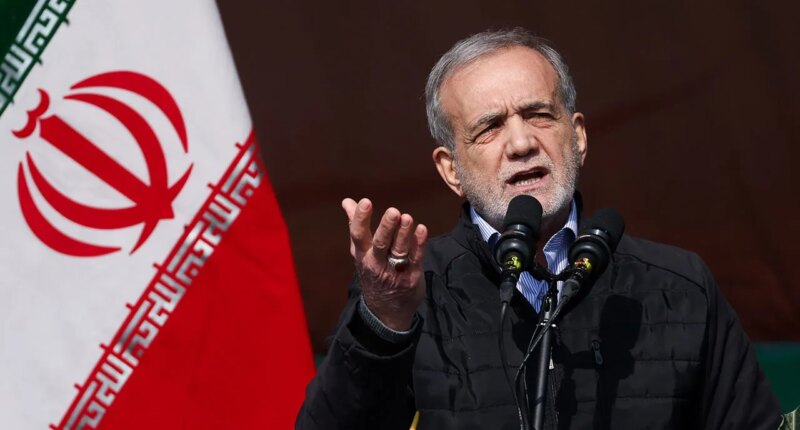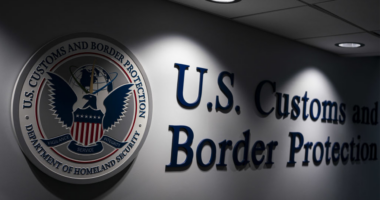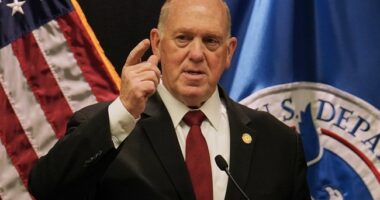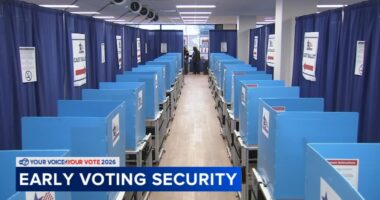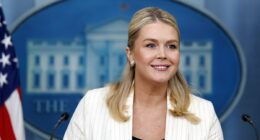Share this @internewscast.com
On Wednesday, Iran’s President Masoud Pezeshkian reaffirmed the country’s commitment to its nuclear agenda, asserting that Iran is “completely ready” for any potential conflict with Israel.
These remarks were made only two days following an announcement by Iran’s foreign minister to Fox News, reiterating Iran’s persistence in maintaining its uranium enrichment activities while still denying any ambitions to create a nuclear arsenal.
In an interview with Al Jazeera, Pezeshkian stated, “[US President Donald] Trump argues that Iran shouldn’t possess nuclear weapons, and we agree with this view because we oppose them – this aligns with our political, religious, humanitarian, and strategic ideals.”
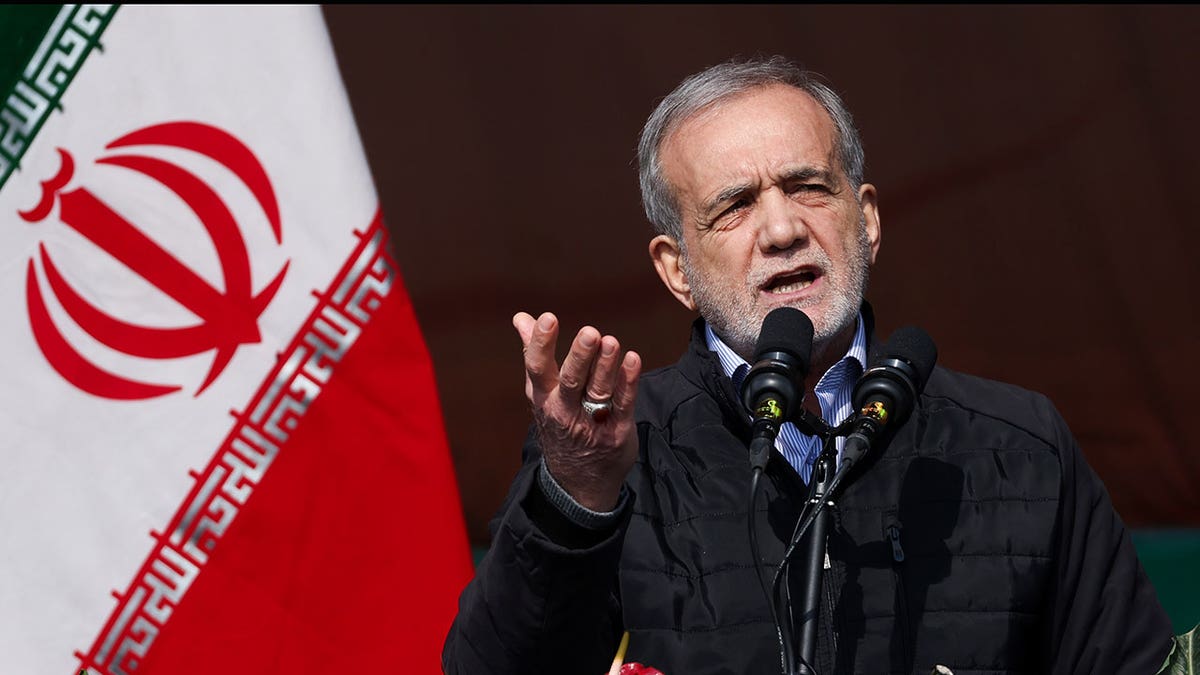
President Masoud Pezeshkian says Iran remains “prepared” for renewed conflict with Israel. (Iranian Presidency/Anadolu via Getty Images)
Iran and Israel are still operating under a ceasefire brokered by the U.S. and Qatar following last month’s 12-Day War, but the Iranian president said he is not confident this truce will hold.
“We are not very optimistic about it,” Pezeshkian said.
“That is why we have prepared ourselves for any possible scenario and any potential response. Israel has harmed us, and we have also harmed it,” he added. “It has dealt us powerful blows, and we have struck it hard in its depths, but it is concealing its losses.”
Delegations from France, Germany and the U.K. (E3) are set to travel to Tehran on Friday to discuss nuclear negotiations.
The E3 visit will come just three days after officials from Russia and China, who are also signatories of the 2015 Joint Comprehensive Plan of Action (JCPAO), visited on Tuesday to discuss negotiations and how Iran can avoid sanctions, though details of the talks remain unknown.

Chinese Foreign Minister Wang Yi stands with Russian Deputy Foreign Minister Sergey Ryabkov and Iranian Deputy Foreign Minister Kazem Gharibabadi, before a meeting on March 14, 2025, in Beijing. (Pool via Reuters)
Iran began initiating international talks after the E3 last week threatened to employ snapback sanctions – which would see the entire 15-member U.N. Security Council enforce strict economic ramifications – should Iran not enter into a nuclear agreement by the end of August.
The timeframe is consistent with the time needed for the JCPOA signatories to recall snapback sanctions prior to the Oct. 18 expiration date when the economic tool can no longer be employed en masse per the 2015 terms of the agreement.
